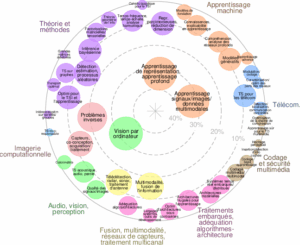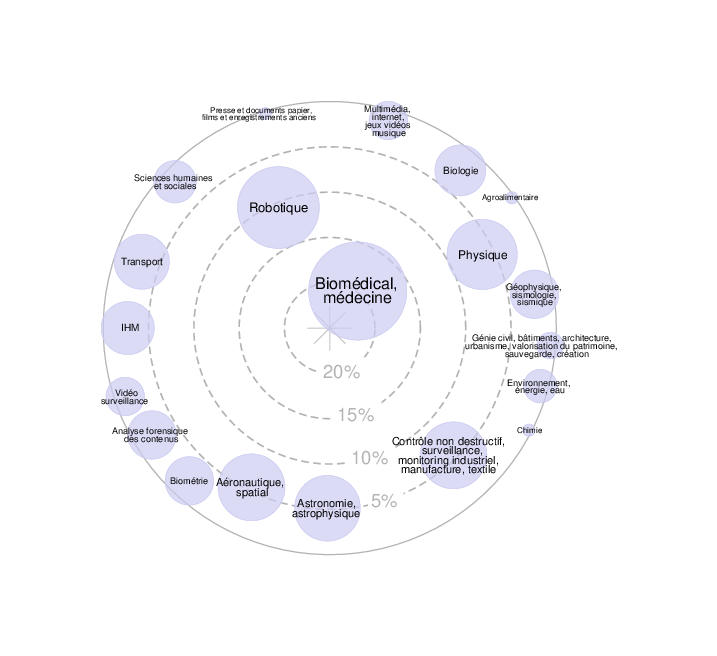Vous trouverez au bout de ce lien une proposition de thèse CIFRE à Paris sur le défloutage aveugle d’images et de vidéos
http://up5.fr/2024-phd-gopro-map5
N’hésitez pas à nous contacter si vous êtes intéressés, et de déposer votre dossier de candidature ici
https://forms.gle/5aQR5TTRBWiB3cVP6
Encadrement:
Andrés Almansa – Directeur de Recherche CNRS – Université Paris Cité
Eva Coupeté – Staff Engineer at GoPro Research Paris
=== English Version ===
We are seeking excellent candidates for an open PhD (CIFRE) position in Paris on Blind Deblurring of Images and Videos. See thesis proposal via the link below
http://up5.fr/2024-phd-gopro-map5
Please contact us if you are interested, and submit your application here
https://forms.gle/5aQR5TTRBWiB3cVP6
Encadrement
Andrés Almansa – Directeur de Recherche CNRS – Université Paris Cité
Eva Coupeté – Staff Engineer at GoPro Research Paris
Subject overview
Images, bursts and videos acquired by smartphones, action cameras, and even professional digital cameras are affected by blur of different sources. Even though some of these (intrinsic) sources can be calibrated, other (extrinsic) blur sources like motion, and defocus are unknown and need to be guessed from the degraded image itself. This blind deblurring problem is extremely ill-posed, and despite recent progress thanks to deep learning and generative AI techniques, the problem is still wide open for future improvements.
During the last three years, our team has significantly improved the state of the art performance in blind image deblurring. On one hand [Laroche2023] achieves reconstructions of unprecedented quality, but at a computational cost that is still not well-suited for real-time or embedded applications. On the other hand [Carbajal2023; Laroche2022] provide more flexibility at a lower cost but can only handle blur kernels of relatively small size. The aim of this thesis is to significantly improve the state of the art in blind image and video deblurring, in terms of image quality, real world applicability and computational speed by leveraging both mathematical models and cutting edge deep learning technologies.
Detailed PhD subject
http://up5.fr/2024-phd-gopro-map5
Contact
Andrés Almansa (see email in detailed description)
Supervising Team
Academic Advisor: Andrés Almansa (CNRS & Université Paris Cité)
Industrial Advisor: Eva Coupeté (GoPro)
Funding & work environment
This PhD position is funded by GoPro Research Paris, via a CIFRE agreement with Université Paris Cité.
As a PhD student you will be part of both GoPro’s research team in Boulogne, and of MAP5 lab in Paris 6ème arrondissement.
In addition to the academic advisors you will be part of an international collaboration team.
Candidate
The successful candidate is expected to hold a Master’s degree in Applied Mathematics, Computer Science, Electrical Engineering, or a closely related discipline. They should have good programming skills in deep learning and scientific computing environments (*e.g.* Python, NumPy, PyTorch, TensorFlow, JAX).
In addition, the following qualifications are desired:
- Solid background in some of the following areas: Computational Imaging, Image Restoration, Variational Methods in Imaging, Bayesian Methods for Inverse Problems.
- Fluent in either French or English (written and spoken) and good communication and interpersonal skills.
Application
Candidates should apply by filling in the following form including at least
- CV and motivation letter
- Grades from your M2, M1
- One or two academic references (and their recommendation letters, if available)
Online form: https://forms.gle/5aQR5TTRBWiB3cVP6





